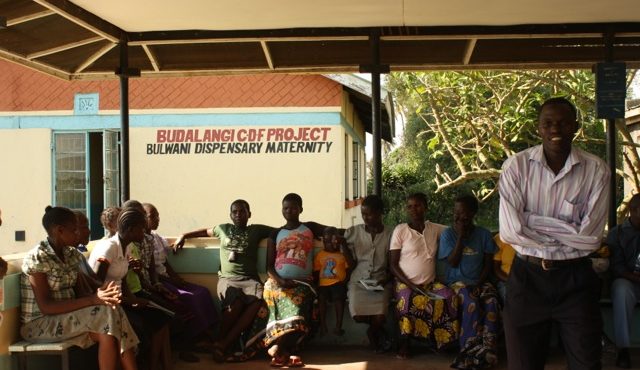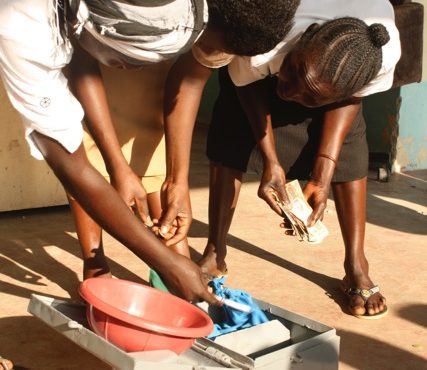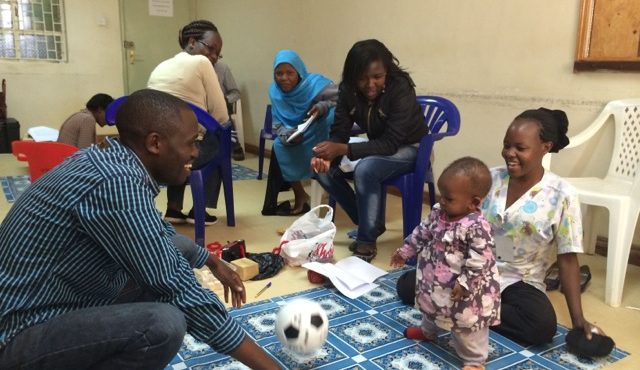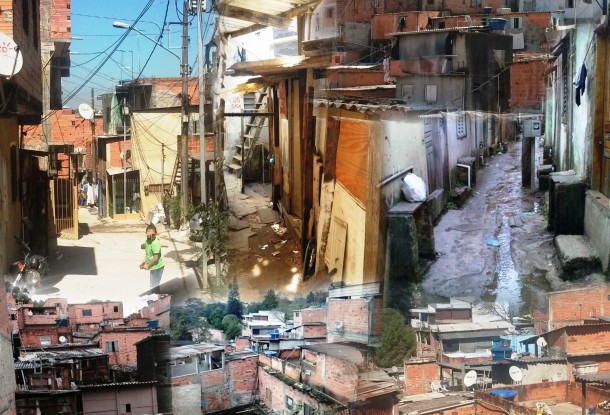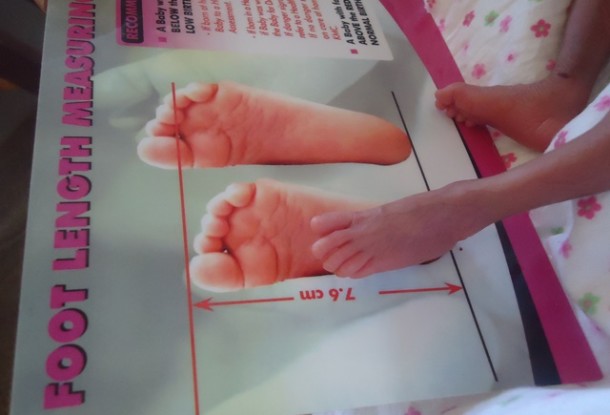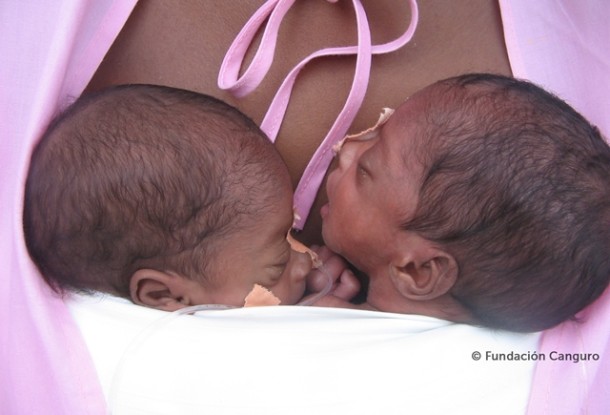Innovation Summary
Worldwide, women and childre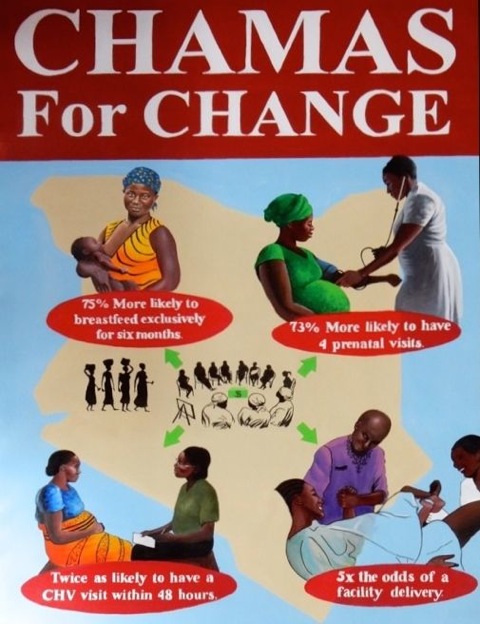 n in poor and rural communities face the
n in poor and rural communities face the
challenges of pregnancy, infancy, and parenthood without supportive relationships in the home or community. Children growing up in these environments face the toxic stresses of maternal death and disa
bility, poverty, violence and neglect. Chamas for Change is designed as an integrated solution to the widespread poverty, violence and neglect that undermine adult capabilities and child development. It is within a larger commitment to improving Maternal, Newborn and Child Health that this project seeks to extend the scope and duration of Chama cha MamaToto as a population-wide strategy to promote good health, provide skills-enrichment to adults and children, and protect against the toxic stresses of poverty, violence and neglect.
Gallery
Impact
Expected Impact:
- Number of parents and their children served through chamas
- % infants exclusively breastfed to 6 months
- % children aged 3-4 years enrolled in preschool
- % women expressing minimal parental stress
- Average interest earned per woman
I have a neighbor who is in chama, though she is younger than me she is doing well in her business and maintains her children very well, before her children were never as healthy as they are now, and she even tells me that it is because of the good teachings she gets in chama. And the money from her business that helps her maintain her children. This woman lends me money sometimes when am in need, am impressed by these and also wish to join so that instead of borrowing always next time I will be the one lending others.
-Non-chama woman, Midpoint FGD
Innovation
Chama for Change is designed as an integrated solution to the widespread poverty, violence and neglect that undermine adult capabilities and child development. This project seeks to extend the scope and duration of Chama cha MamaToto as a population-wide strategy to promote good health, provide skills-enrichment to adults and children, and protect against the toxic stresses of poverty, violence and neglect through parenting education provided by trained Community Health Volunteers. Recognizing that our biologies are prone to harmful remodeling in the face of such stresses prenatally and in early childhood, we will use the chamas as a service delivery platform to effectively enhance the critical skills of planning, monitoring and self-regulation in adults, and in time, their children.
Translated from kiswahili as ‘groups’, chamas have a longstanding presence in East Africa. Readily assembled in times of famines, floods and funerals, chamas are effective networks through which individuals can meet outside the home and pool resources in emergencies. Using this existing cultural script, we developed Chama cha Mamatoto. These chamas are mother-child groups that are tailored to the needs of mothers and children living in poverty in rural areas in western Kenya. Our chamas are designed to generate peer support for women in order to empower them to improve their own and their children’s health and development in a proactive and preventive manner.
Facilitated by government Community Health Volunteers, chamas are a low-cost, self-sustaining and self-managed solution that integrates health, social and financial literacy education with a savings/loans program. Upon joining, women pledge to participate in bi-weekly meetings for one year and uphold the goals of the chama: support each other, save and become entrepreneurs, and commit to self-selected health and child development goals.
During meetings, women discuss social, health, and child development topics, learn accounting, safekeeping and parenting skills, and receive mentorship from their peers to engage in income generating activities. These groups offer the opportunity to introduce a core set of adult capabilities through coaching and training to break the intergenerational cycle of poverty and provide children with the positive environments needed for their growth and development.
We will show the effectiveness of this integrated innovation in Bunyala sub-county covering a population of 75,000 people. Over 18 months, we aim to:
- Objective 1: Show that these chamas can build mother’s maternal confidence and wellbeing and parents’ skills to provide a nurturing, safe and supportive home environment
- Objective 2: Demonstrate that children of parents attending these chamas have improved growth and development
- Objective 3: Demonstrate that chamas can create income-generating activities for CHWs by providing CHW remuneration through chama dividends by the second year of chama operation
- Objective 4: Improve women’s empowerment by equipping women with the skills to prioritize savings and subsequently invest in their children’s education, health expenditures and income-generating activities.
Collaboration
Funders:
- Saving Brains Partners
Key Partners:
- Academic Model Providing Access to Healthcare
- University of Toronto
- Moi University
- Busia County Government-Kenya
- Ministry of Health-Kenya
- Sinovuyo Caring Families Project
Implementation
Expected Drivers:
- Community Health Volunteer (CHV) workforce able to generate income
- Continued demand and attendance by women
- Chama training and procedure manual developed
- County support and cost-sharing
Expected Challenges:
- CHV burnout, sustainability, and skill level
- Fluctuating attendance and enrollment due to competing demands
- Child developmental assessments are long and costly
- Short grant cycle difficult to fully implement and show change in development
Continuation
We have received Saving Lives at Birth funding to validate our model in a new county. This new implementation will start in May of 2016. We will first implement chamas with a focus on pregnancy and infancy, but will hope to incorporate the Malezi Mema program as the chamas mature.
Evaluation Methods
This project will use a mixed-methods research strategy to meet the study objectives. To assess impact, we will employ a prospective cohort study design with a matched control group. A randomly selected group of women and their children <5 enrolled in the chamas (~650) will be compared to a matched group of women and their children. We will perform child developmental assessments and a caregiver interview(parent interaction, parent stress, harsh punishment and health outcomes) in this group. In addition, program monitoring and evaluation data will be used to study delivery of the intervention, including improvements in health and growth in all women and children in chamas.
To assess community acceptability of this program, the team will carry out focus group discussions and in-depth interviews with mothers and fathers, community health workers and community leaders.
Finally, to assess the future sustainability of the program, the team will collect costs associated with this program, as well as the income generated by the women and CHVs in chamas.
Impact of Innovation
- 650 women and their children are enrolled in chamas
- 50 CHVs have received extensive training in facilitating a parenting program
- More than 25 savings and loan programs are running in the sub-county
Cost:
Chamas require start-up costs in order to obtain supplies and provide necessary training, but after the first year of implementation, chamas primarily sustain themselves and the CHWs in their community. Within their first year, our chamas were flourishing without the need for additional financial inputs. On average, 6 women receive loans at each meeting, varying between 200 KSh up to 2000 KSh ($2-22). Of the 16 groups in the first year, nearly all generated sufficient profits to repay their initial set-up costs. To ensure the sustainability of the program, in January 2015, communities selected 12 of the trained CHWs to become service managers, who will assume the overall management of these groups. In return, all groups have agreed to pay 20Ksh/member/month to contribute towards CHW salaries.
